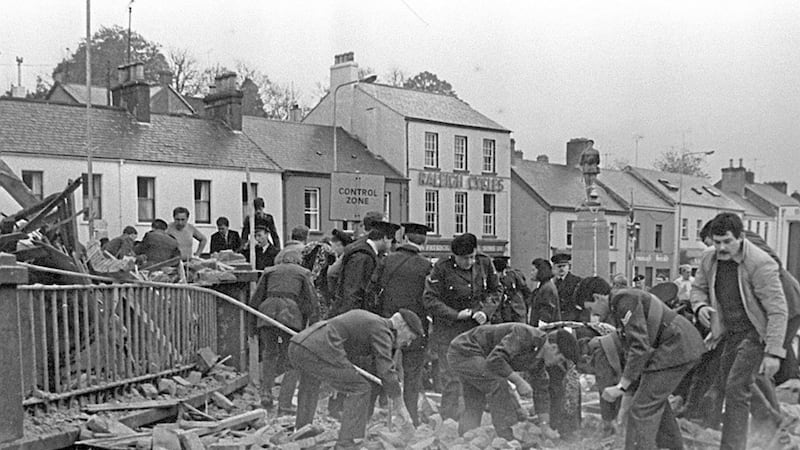LEGACY. The world itself doesn’t even hint at what it’s supposed to signify but then countless words couldn’t begin to convey the long-term impact on society of such a brutal era in its history. Perspectives even diverge on what year marks the beginning of the actions that have left their legacy, while there are also debates on where the geopolitical boundaries begin and end.
There are few areas of consensus when it comes to dealing with the past yet today’s Institute of Irish Studies University of Liverpool survey appears to have identified one.
The research shows that more than two-thirds of people want the past dealt with. That means they don’t want it fudged, airbrushed, or have a line drawn under it. The survey also appears to show greater recognition than previously of suffering on both sides, which is appears to be a consequence of getting further away from the conflict. With time, it is hoped, bitterness dissipates.
Political Correspondent John Manley discusses the results of today's opinion poll with Slugger O'Toole's David McCann and Irish News columnist Mary Kelly
Yet as the same poll showed, legacy isn’t a vote winner, and was regarded as an ‘important issue’ by just 1.7 per cent of respondents. It’s therefore not prioritised by politicians and is much more likely to be weaponised.
Often political leaders are accused of failure and in this instance it's hard to argue that they have have succeeded in any way, even modestly. Templates for dealing with the past fairly and comprehensively, most notably Eames-Bradley and the Stormont House Agreement, have been sidelined and neglected, in many ways a metaphor for the legacy issue itself. This has led to a piecemeal and inconsistent approach that serves sectional interests rather than society's.
Recent reports from Police Ombudsman Marie Anderson have shone a light on the unedifying and unjustifiable collusive behaviour of RUC personnel. Yet powerful as they may be, the reports stand in isolation, detached from the justice system, and arguably as important, independent of any wider strategy that seeks to heal the festering wounds such actions created.
Dealing with the past is by its nature contentious and difficult. There are competing narratives and different priorities from family to family. But the almost three decades since the first IRA ceasefire has shown us that ignoring the elephant in the room is not a sustainable strategy, as at some point it will inevitably stand on your toe.
If the Institute of Irish Studies-University of Liverpool/The Irish News survey shows us anything, it's the need for fresh impetus and new, joined-up thinking that isn't designed solely to protect one group involved in the conflict. It requires funding, direction and momentum, something that needs to come from the top down.
Securing prosecutions, culpability or compensation can't be ruled out entirely, even if a significant proportion of the population believe they should be. Yet in parallel to supporting these increasingly unattainable outcomes, there's a need for more symbolic gestures of reconciliation and acknowledgement. Failure to address the past means society is more likely to be haunted by it.








